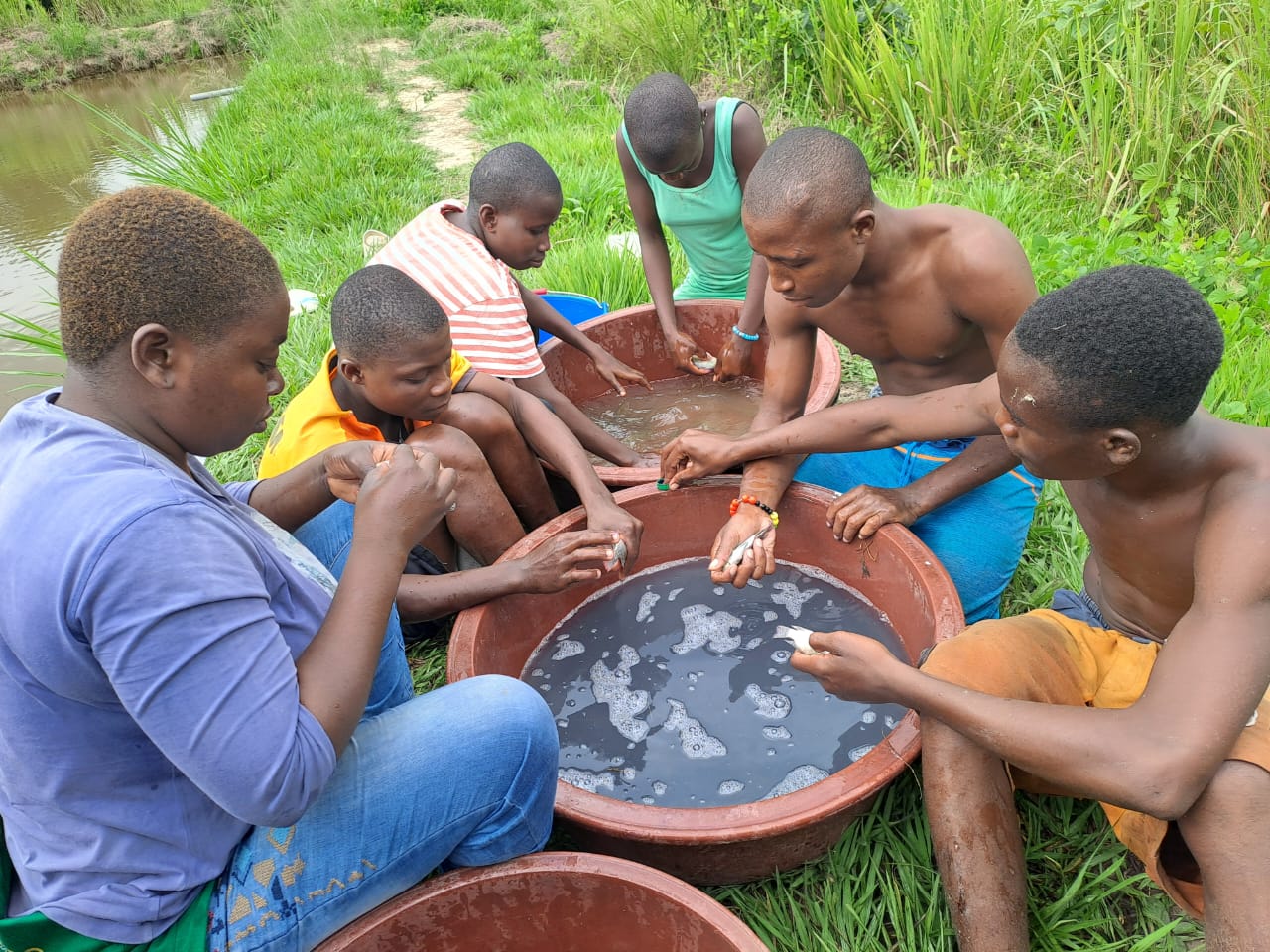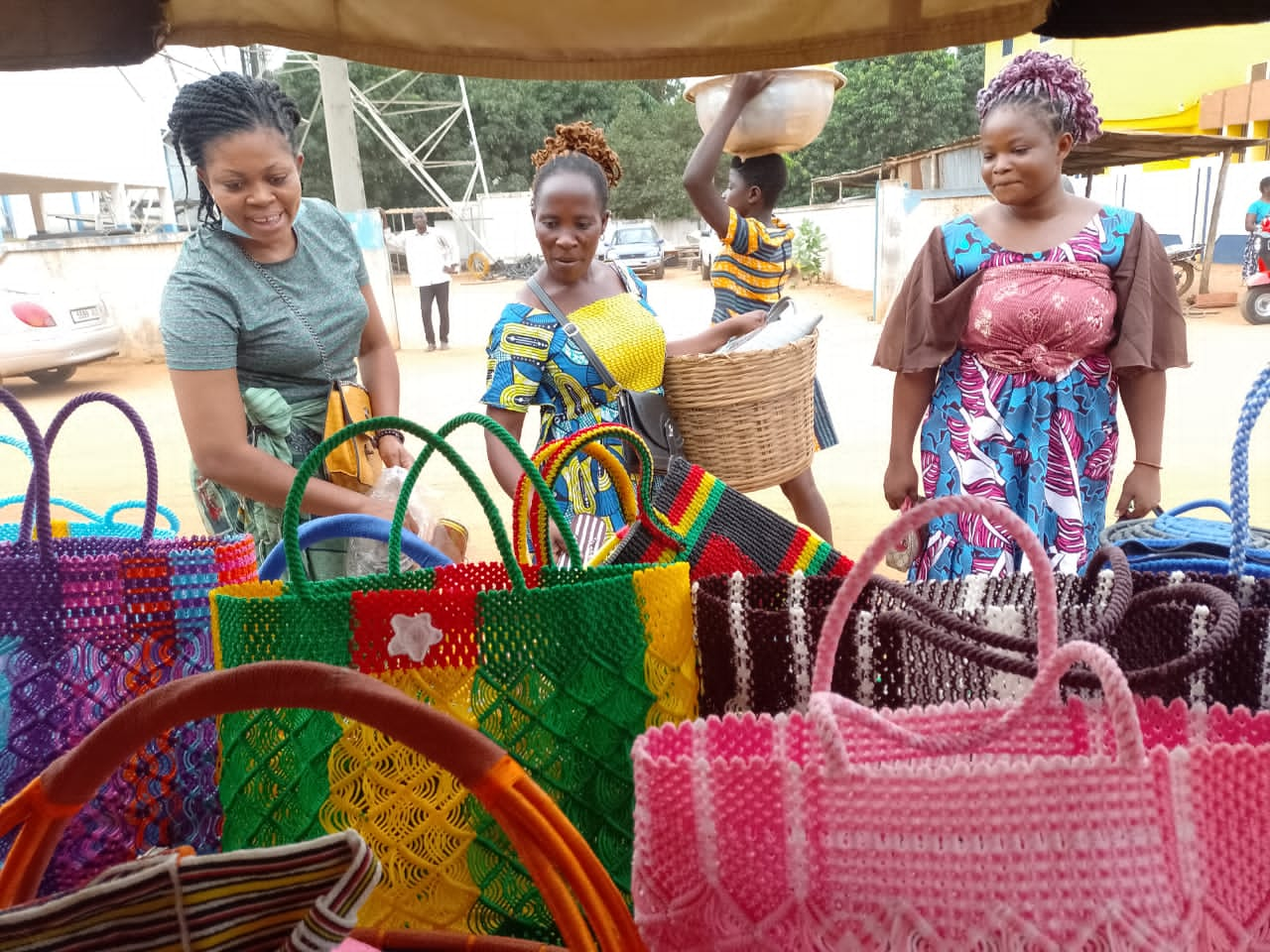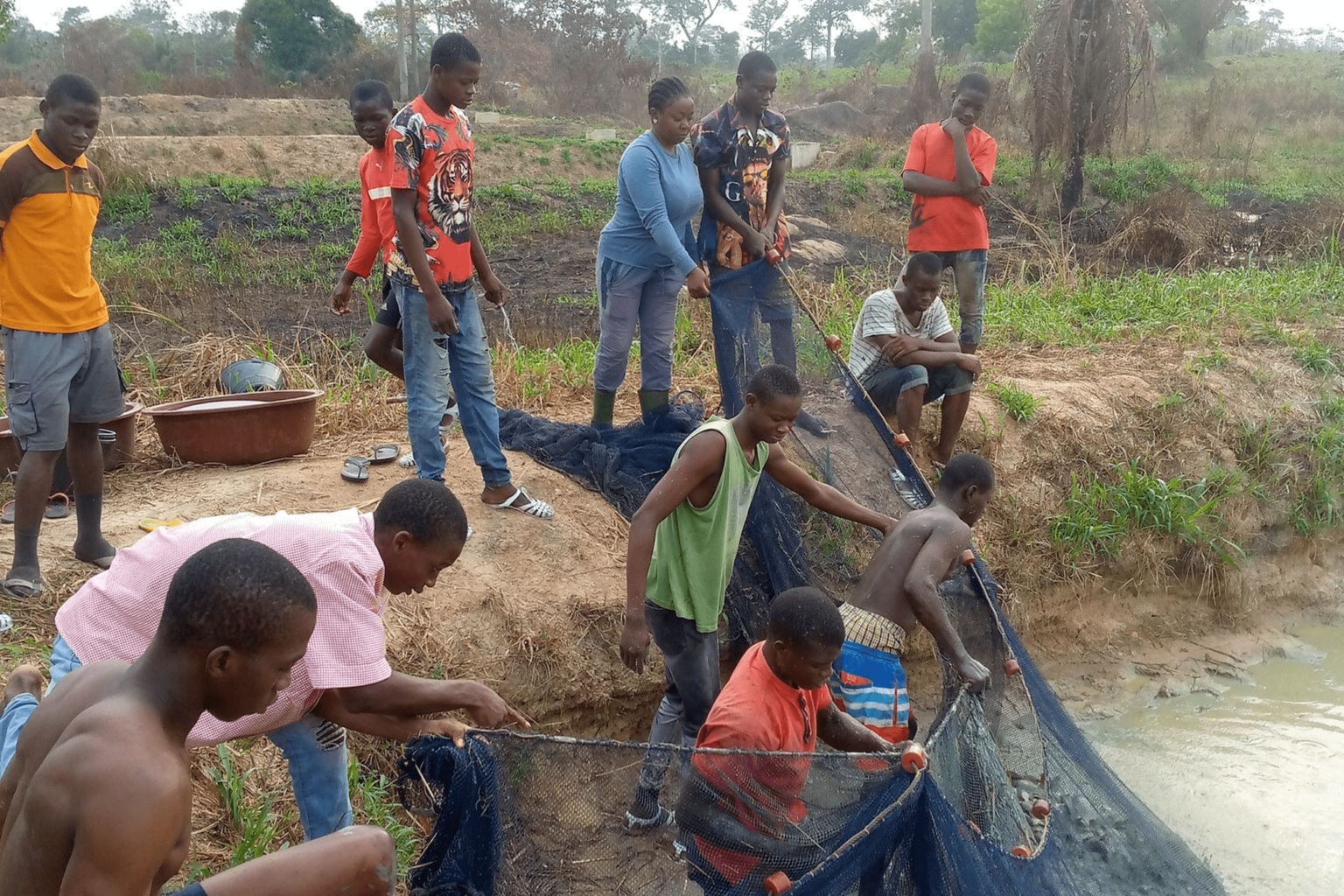
Summary
A center that welcomes young people upon their release from detention or as an alternative to prison, allowing them to receive training in agriculture, animal husbandry, and fish farming. A comprehensive approach is also applied, from literacy to family mediation.
Country
Ivory Coast
Time period
7th year
Direct beneficiaries in conflict with the law
25 minors
Budget
CHF 220’000
Local partner
Ivory Coast Prison Fellowship
In Côte d’Ivoire, 80% of the measures applied to minors in conflict with the law are custodial sentences – in other words, prison. However, with no real rehabilitation measures in place, these young people return to delinquency most of the time once out of prison. To make up for the lack of rehabilitation structures, the Onésime center saw the light of day in the spring of 2018 in the small village of Taboitien, around a hundred kilometers from Abidjan.
Once incarcerated, minors find themselves stigmatized and excluded not only from their communities, but also from their families. Avoiding prison is therefore of paramount importance. Thanks to recognition from the Ministry of Justice, the center welcomes not only minors released from prison, but also minors under committal order, i.e. minors placed by the judge at the Onésime center, in lieu of prison.
With its holistic approach, the Onésime center offers a real chance of reintegration by promoting the social, professional and family reintegration of these children.
Formation
- Theoretical and practical training in agriculture, livestock farming, and fish farming
- Official recognition of training (with diploma)
- A modern, agro-ecological approach
- Literacy and civic education courses
- Post-training follow-up (external internships, job search, etc.)
Support
- Supervision by educators (from the Ivorian Ministry of Justice)
- Medical and psychological follow-up
- Chaplain support
- Sports and artistic activities (soccer, sculpture, drawing, etc.)
- School materials, tools, clothing and food
- Links with juvenile court judges
Family reintegration
- Family tracing and sponsors
- Visits to the family home
- Family mediation
- Family stay at the Onésime center (parents’ villa)
- “Ecole des parents” (awareness-raising, experience-sharing)
Income-generating activities and sustainability
- Marketing the center’s agricultural and fish products
- Local partnerships with the Ministry of Justice, etc.
- One person dedicated to communication and resource mobilization



